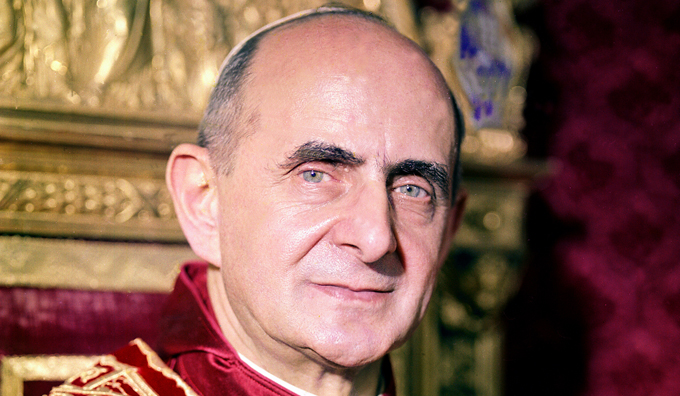David Werning
The dogmatic constitution from Vatican II, Lumen Gentium, promulgated 60 years ago, sets forth the nature and mission of the Church. It begins by naming Jesus as the “Light of the Nations” Lumen Gentium and head of the Church, which is his body and includes all the faithful. Jesus established the Church and ever sustains it as a sign and instrument of his grace, which is offered to all people.
It focuses on the different roles and charisms and roles in the Church – laity, clergy and religious – and how the members travel together on their pilgrim way, witnessing to Christ on Earth by lives of holiness.
Lumen Gentium ends by pointing the faithful to Mary as “a wholly unique member of the Church” and “the model of virtues.”
The fathers at Vatican II, wanted to fill in the blanks from Vatican I (19th Century) caused by war and politics, with Lumen Gentium.
Pope St John XXIII convened Vatican II in 1962 and died in 1963, a year before Lumen Gentium was issued. His successor, Pope St Paul VI, adopted his predecessor’s directive that the teachings of Vatican II should favour a pastoral approach, being open to the goodness of the world and sharing the good news of Jesus with all.
All the elements in the final version of Lumen Gentium serve to illuminate the essence of the Church as a pilgrim people journeying through history under the headship of Christ toward full communion with him in Heaven.
Society
Through the holiness and witness of its members, the Church not only receives Christ’s grace but dispenses it. Lumen Gentium says that each “disciple of Christ has the obligation of spreading the faith.”
Regarding the visible society on Earth, the Church consists of the laity, clergy and religious. Since they are all one in Christ, they share “a true equality” and participate in Christ’s mission according to their role. Each baptised person is a priest, prophet and king.
Members of the clergy are called to the ministerial priesthood. They have the responsibility of presiding at the liturgy, preaching the Gospel and governing the Church. Members of the laity enjoy what is called the common or baptismal priesthood, however, the laity have the special vocation of being a leaven within society, seeking God’s will in temporal affairs and being a witness to Jesus. Religious are members who have received the special gift of conforming themselves to the evangelical counsels of Christ: chastity, poverty and obedience. When each member seeks to fulfil his or her role, relying on God’s grace, the goal of Heaven becomes that clearer for them and for those to whom they witness.
Lumen Gentium is quite clear “that all Christians in any state or walk of life are called to the fullness of Christian life and to the perfection of love.” All are called to universal holiness, which is not a passive reception of God’s grace. Rather, it is an active response to it. It is the normal way of life for anyone who seeks to follow Christ, and it entails cultivating the relationship with God through daily prayer, acts of charity and participating in the life of the Church.
The call to holiness is shared by every disciple: to place one’s faith and trust in God, to receive Christ’s gifts that he offers through the Church by the power of the Holy Spirit, to persevere in love and to fulfil God’s will.
David Werning writes from Virginia.


 Pope St Paul VI
Pope St Paul VI 